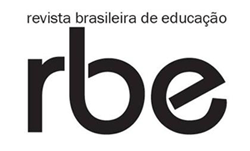Resumo em Português:
O texto objetiva refletir sobre a rumorosa questão que envolve o ensino religioso em escolas públicas. Esse ensino religioso, ainda que facultativo, vem revelando-se problemático em Estados laicos, perante o particularismo e a diversidade dos credos religiosos. Cada vez que tal proposta compareceu à cena dos projetos educacionais, veio carregada de uma discussão intensa em torno de sua presença e factibilidade em um país laico e multicultural. No caso do Brasil, o conjunto de princípios, fundamentos e objetivos constitucionais, por si só, garante amplas condições para que, com a toda a liberdade e respeitadas todas as opções, as igrejas, os cultos, os sistemas filosófico-transcendentais possam, legitimamente, recrutar fiéis, manter crentes, manifestar convicções, ensinar seus princípios, fundamentos e objetivos e estimular práticas em seus próprios ambientes e locais. Além disso, hoje mais do que ontem, as igrejas dispõem de meios de comunicação de massa, em especial as redes de televisão ou programas religiosos em canais de difusão, para o ensinamento de seus princípios.
Resumo em Inglês:
The article seeks to reflect on the thorny question of religious education in public schools. Although optional, religious education has become problematic in secular states, when faced by the particularity and diversity of religious creeds. Whenever such a proposal appears on the scene of educational projects, it comes charged with an intense discussion concerning its presence and viability in a secular multicultural country. In the case of Brazil, the set of constitutional principles, motives and objectives alone guarantees ample conditions to enable the churches, cults and philosophical-transcendental systems, with all liberty, and respect for diverse options, to recruit followers legitimately to maintain their beliefs, demonstrate convictions and teach their principles, motives and objectives and stimulate practices in their own places and spaces. Besides this, today more than ever before, the churches have at their disposal means of mass communication, in particular television networks or religious programmes on broadcasting channels, for transmitting their principles.
